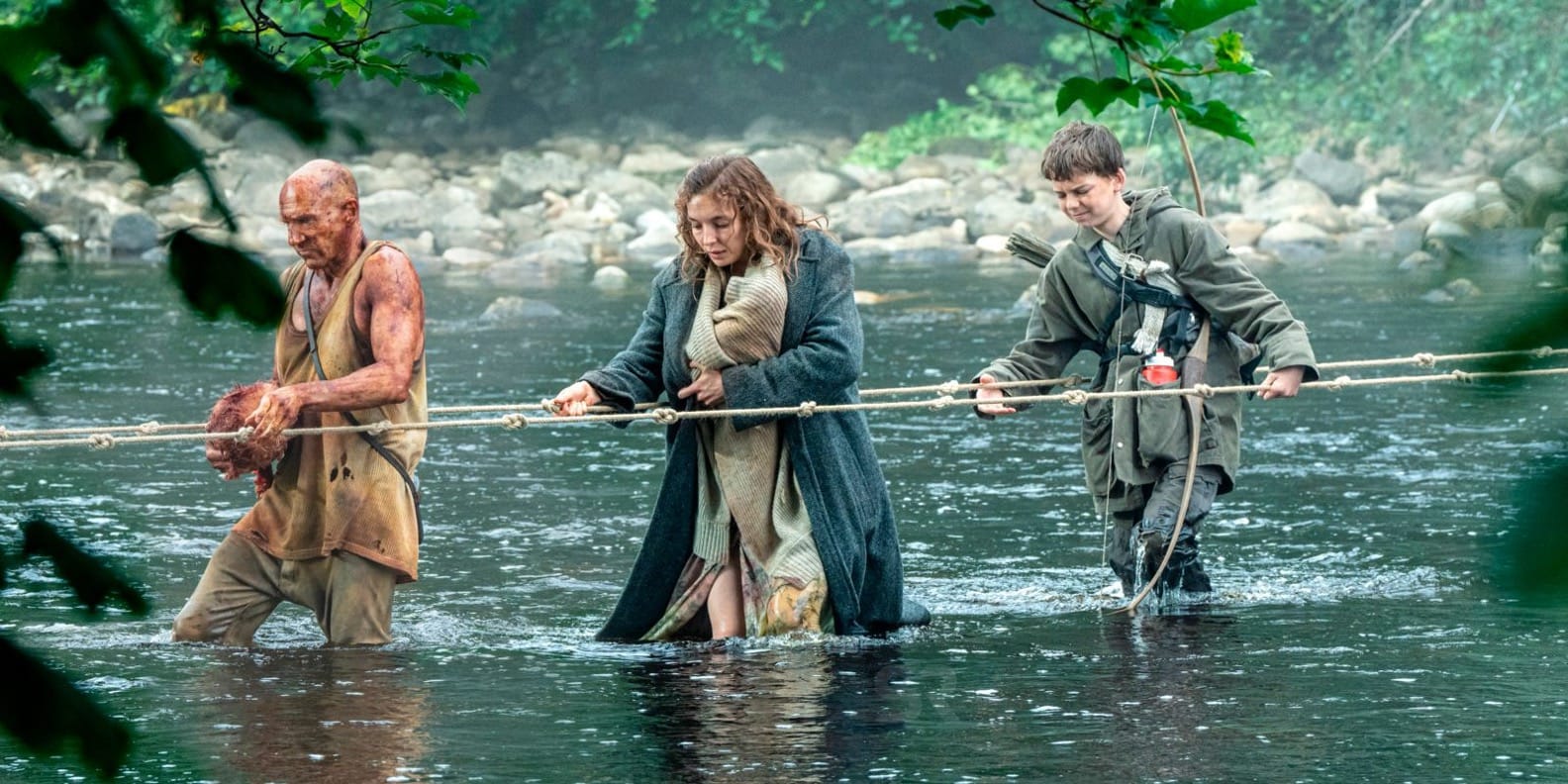★★★ (3 out of 4)
How scary can a movie be if it starts with a bunch of kids watching harmless, pastel-colored Teletubbies on TV? If we’re talking “28 Years Later, “ now only in theaters, I’d say scary to the max. Right in the first scene of this explosive, nerve-frying, pulse pounder, sharp-toothed zombies descend on the tykes and rip at their tender flesh. One of the kids, Jimmy, escapes to a church where his pastor father exults in this day of reckoning, telling his son to join him in surrender to these fine young cannibals. Jimmy, a real smartie, is not having any of it. The year is 2002, when the first movie in the series, “28 Days Later,” was set and nearly all of England was infected with the appropriately named rage virus.
.
The past is prologue as we cut to a dark screen inscribed with the words, “28 years later.” OK, got it. Jimmy is all grown and played by Jack O’Connell, but we won’t see him and his cult of Jimmys until the end of the film, which returns director Danny Boyle and screenwriter Alex Garland to the zombieland they conceived with such bracing, low-budget brilliance in 2002. There was another movie in between called “28 Weeks Later” that didn’t involve Boyle and Garland, so we won’t involve it in this review.
So back to getting our bearings. Nearly three decades after the UK was decimated by the infected, NATO forces have basically told survivors of the rage virus to fend for themselves (hello, Brexit). The rest of the world will go on as usual, though the Covid pandemic has given all of us a nasty taste of infection, isolation, quarantines and death.
That’s when we join the family at the core of the film. Jamie (Aaron Taylor-Johnson), his wife Isla (Jodie Comer) and their 12-year-old son Spike (sensational newcomer Alfie Williams) are part of a small community of survivors living on Lindisfarne, an island village connected to the mainland by a heavily guarded causeway that high tide completely covers over twice a day. You can feel the isolation in your bones as Boyle, the Oscar winning director of “Slumdog Millionaire,” plus such cult classics as “Trainspotting” and “127 Hours,” ratched up the tension past unbearable.

This sets off a series of gory confrontations too good to spoil, though watching father and son try to escape an Alpha zombie rushing after them in leaps and bounds is the stuff of nightmares. Boyle is famous for the speedy zombies from the first film, but they come in all sizes and speeds this time. It’s up to writer Garland (“Ex Machina,” “Civil War”) to set the emotional depth charges in scenes that show Spike feeling betrayed when he sees his dad cheat on his mom with another woman.
Comer, an actress of stunning versatility (see “Killing Eve” and “Prima Facie”), brings an aching tenderness to her scenes with young Williams, a boy who doesn’t understand the headaches and hallucinations that plague her. It’s Spike who takes her to see Ian Kelson, a broken doctor (he builds towers out of human skulls) played by Ralph Fiennes like a sparking livewire who’s channeling Marlon Brando’s mad colonel (the horror! The horror!) in “Apocalypse Now.”
Among the actors who come and go are Edvin Riding as a Swedish NATO soldier who holds out a sliver of help for Spike and a baby that appears as if out of nowhere. Kudos to camera wiz Anthony Dodd Mantle, shooting with high-def digital cameras that set the screen ablaze, whether he’s mixing scenes of men at war with footage of Laurence Olivier in Shakespeare’s “Henry V” or closing in on the face of child with nowhere to turn.
Yet all these technical marvels can’t stop “28 Years Later” from coming apart at the seams in its tonally erratic final stretch, though O’Connell and his army of Jimmys wearing Teletubby colors are certainly a dazzling distraction. Perhaps all will become clear during the next chapters in this planned trilogy. Chapter 2, called “The Bone Temple” and directed by Nia DaCosta of “Candyman” fame, is already finished and will be released in January. Boyle will return for Chapter 3 with a promised appearance from “Oppenheimer” Oscar winner Cillian Murphy, who started the whole thing 23 years ago as a bike messenger named—wait for it—Jimmy.
Like Rudyard Kipling’s hypnotic poem “Boots,” used in the trailer and the movie, “28 Years Later” is on a relentless march— "boots—boots—boots—boots—movin' up an' down again!"— and there’s no way you can get it out of your head.

